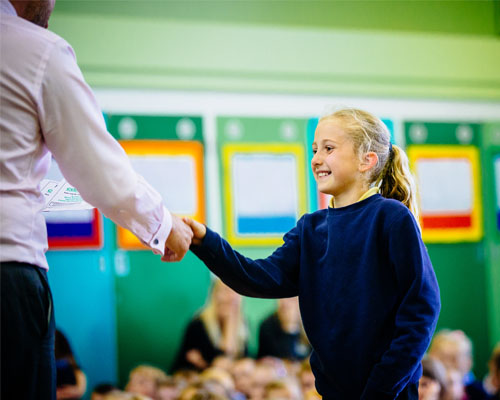The internet is an amazing resource and it is used frequently in school to support children’s learning. Increasingly younger children access the internet at home and are choosing to spend more time online. It enables children to connect, communicate, learn, play and be creative on a wide range of devices. However, the internet is always changing and there are some risks to going online. Being able to keep up to date with your children’s use of technology can be a challenge, but you don’t need to be an expert to help keep your child safe online. On this page, we have shared a range of resources and links that you can use to support your child to use the internet safely and responsibly.
Online Safety
The school, parents and carers all play a key role in keeping children safe online. Our Willow Lane Curriculum ensures that all children in Year 1 to Year 6 study units that focus on Online Safety. These cover areas such as online relationships and bullying; privacy and security; managing online information; and self-image and identity. The school has robust internet filtering systems and expert technical to support us in ensuring the children are safe when accessing the internet in school. We also aim to work together with parents and carers by sharing up-to-date information, resources and top-tips through workshops, letters, Facebook and our website. For further information, see our Online Safety, Behaviour, Anti-Bullying, and Safeguarding policies (on the Policy section of our school website).
Steps you can take to help keep your child safe online
Set-up parental controls: These are tools you can use to help manage your child’s online activity. See the internet matters link below for helpful guides on parental controls.
Follow this link for help setting parental controls on common phones and apps: Online Safety Videos
Supervise their online activity: Primary age children should not access the internet without supervision. Keep children’s use of online devices in shared family areas.
Check in with your child: Have quick chats with your child about the games and apps they are using each week. Ask them if anything ever worries them online.
Make sure they know where to go for help: Remind your child they can always speak to you or another adult they trust if anything worries them online. Make sure they know they won’t be in trouble and can get help by talking to you.
Talk about how to be positive on the internet: Remind your child to think how someone else might feel before they post or share something online.
Use ‘SafeSearch’: Try using Safe Search Kids or another safe search engine. Most search engines have a safe search settings that can be activated in the settings (often a small cog icon).
In this Section

Think U Know
Thinkuknow is the education programme from CEOP, a UK organisation which protects children both online and offline.
Learn More →CEOP
If you're worried about online abuse or the way someone has been communicating online, let CEOP know.
Learn More →Safer Internet
UK Safer Internethas tips, advice, guides and resources to help keep your child safe online.
Learn More →Lancashire Safeguarding
Ensuring that Children and Young People in Lancashire are kept safe and that all agencies do what they can to promote their welfare.
Learn More →Other useful websites and resources for staying safe online:
- internet matters provide step-by-step guides for setting parental controls on a wide range of technology, including phones, social media apps and wi-fi networks.
- Childnet provides a range of support and guidance with online safety guides for parents.
- Google Family Link can help you supervise children’s online activity and set ground rules as they learn, play and communicate online.
- Common Sense Media provide reviews and guidance on age appropriate films, games and apps.
- Online Safety Guide for Parents
- Parent Online Safety Briefing Presentation
Online Parental Controls Booklet View PDF →
Online Safety Newsletter July 25 View PDF →
Online Safety Newsletter June 25 View PDF →
Online Safety Newsletter March 25 View PDF →
Online Safety Newsletter Feb 25 View PDF →
Online Safety Newsletter Jan 25 View PDF →
Online Safety Newsletter Dec 24 View PDF →
Online Safety Newsletter Oct 24 View PDF →
Online Safety Newsletter September 24 View PDF →
Online Safety Newsletter March 24 View PDF →
Year 6 Social Media Use View PDF →
Online Safety - Tips for Parents View PDF →
Parents Helpsheet View PDF →
Reward Chart linked to Think U Know activity packs View PDF →
Think U Know Reception activity 1 View PDF →
Think U Know Reception activity 2 View PDF →
Think U Know Key Stage 1 activity 1 View PDF →
Think U Know Key Stage 1 activity 2 View PDF →
Think U Know Key Stage 2 activitiy 1 View PDF →
Think U Know Key Stage 2 activity 2 View PDF →
Online Safety - radicalisation information View PDF →
Prevent Strategy View PDF →





